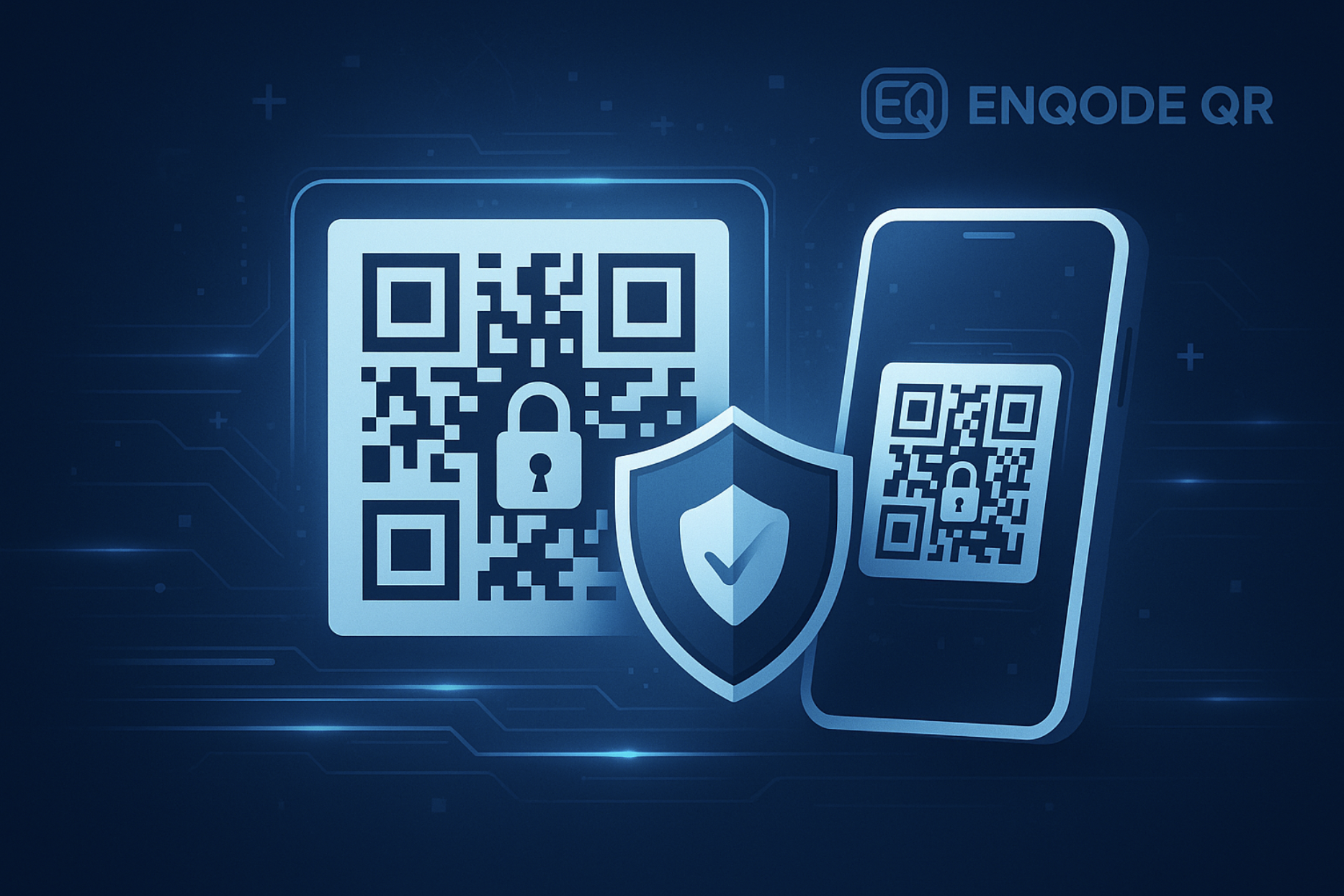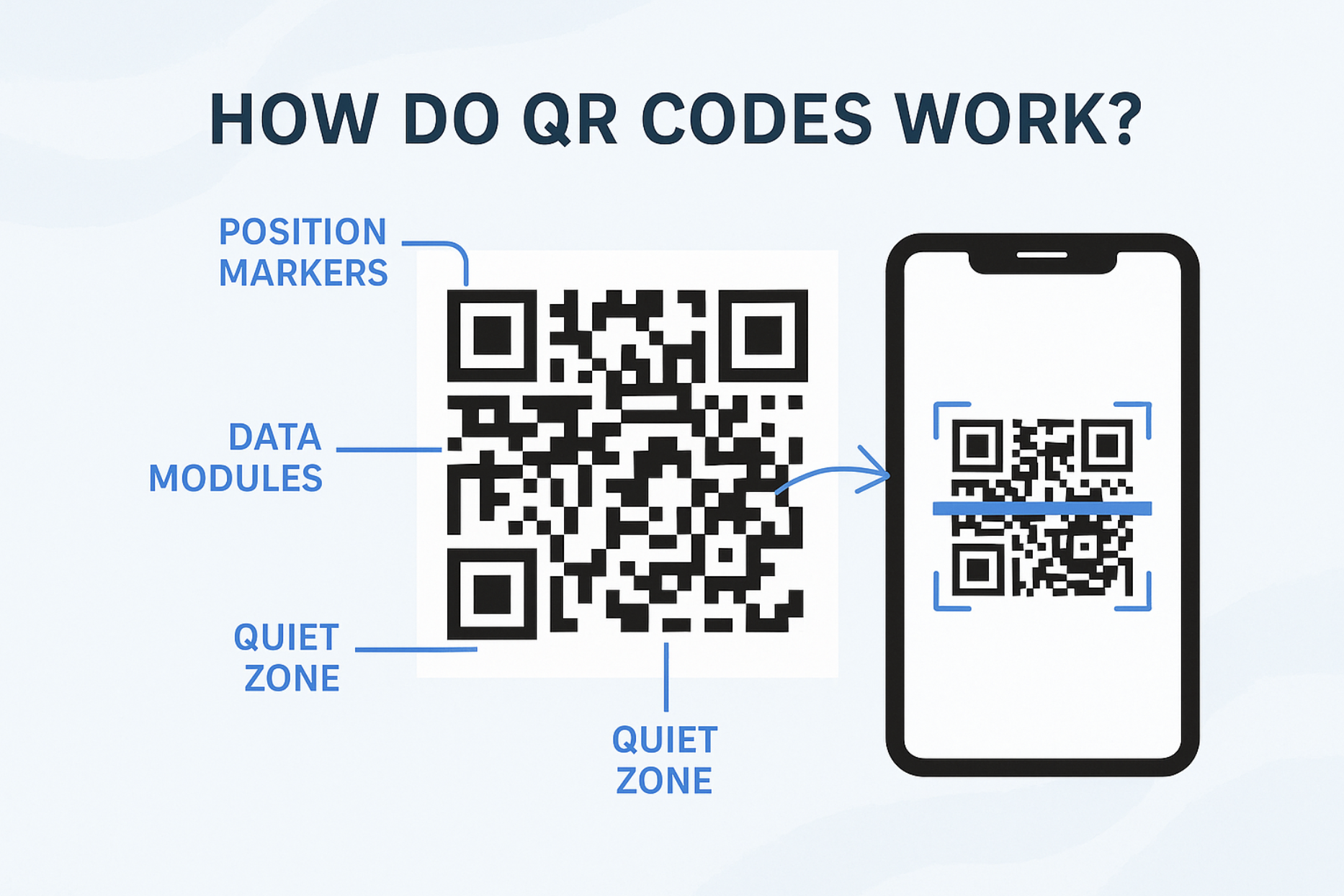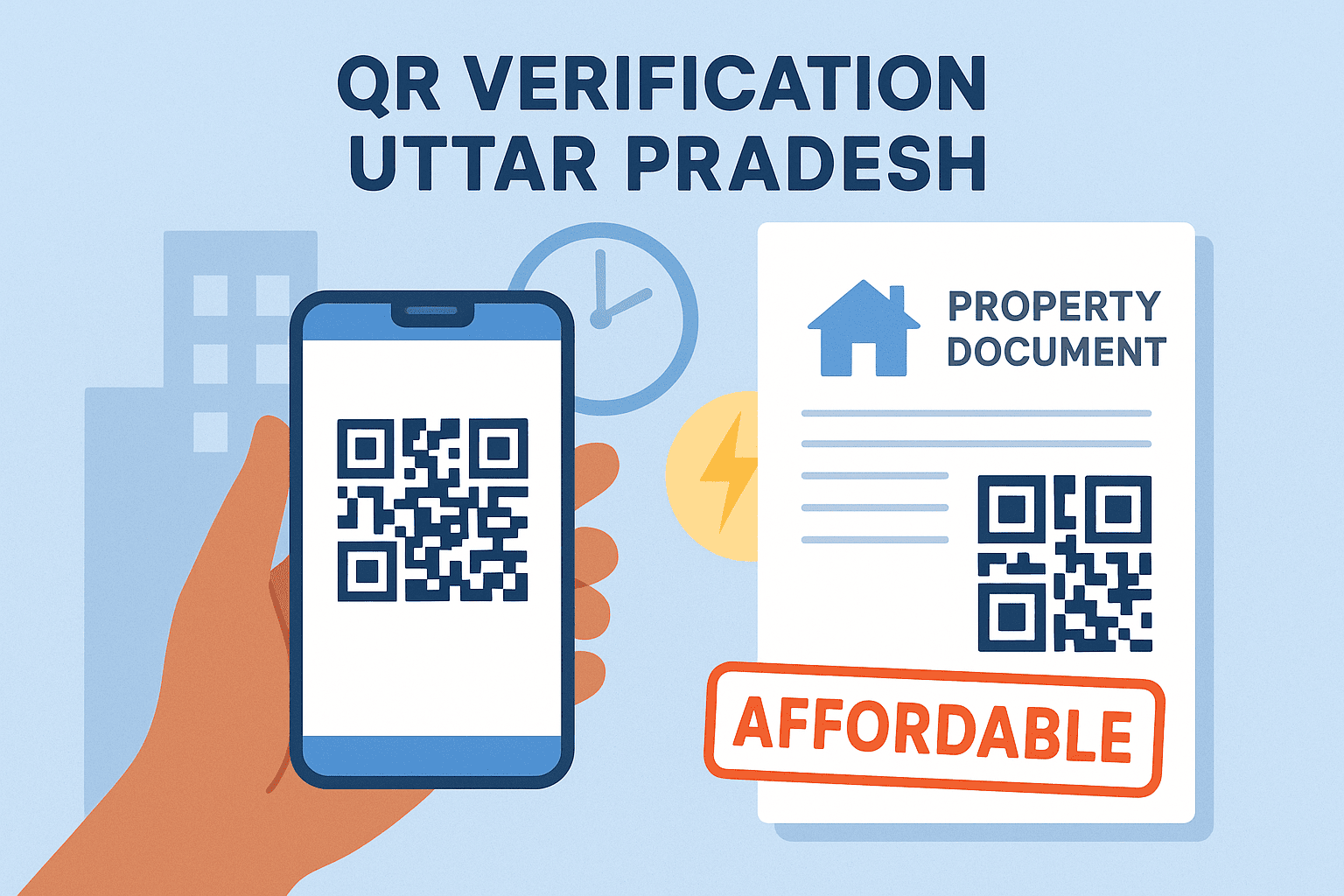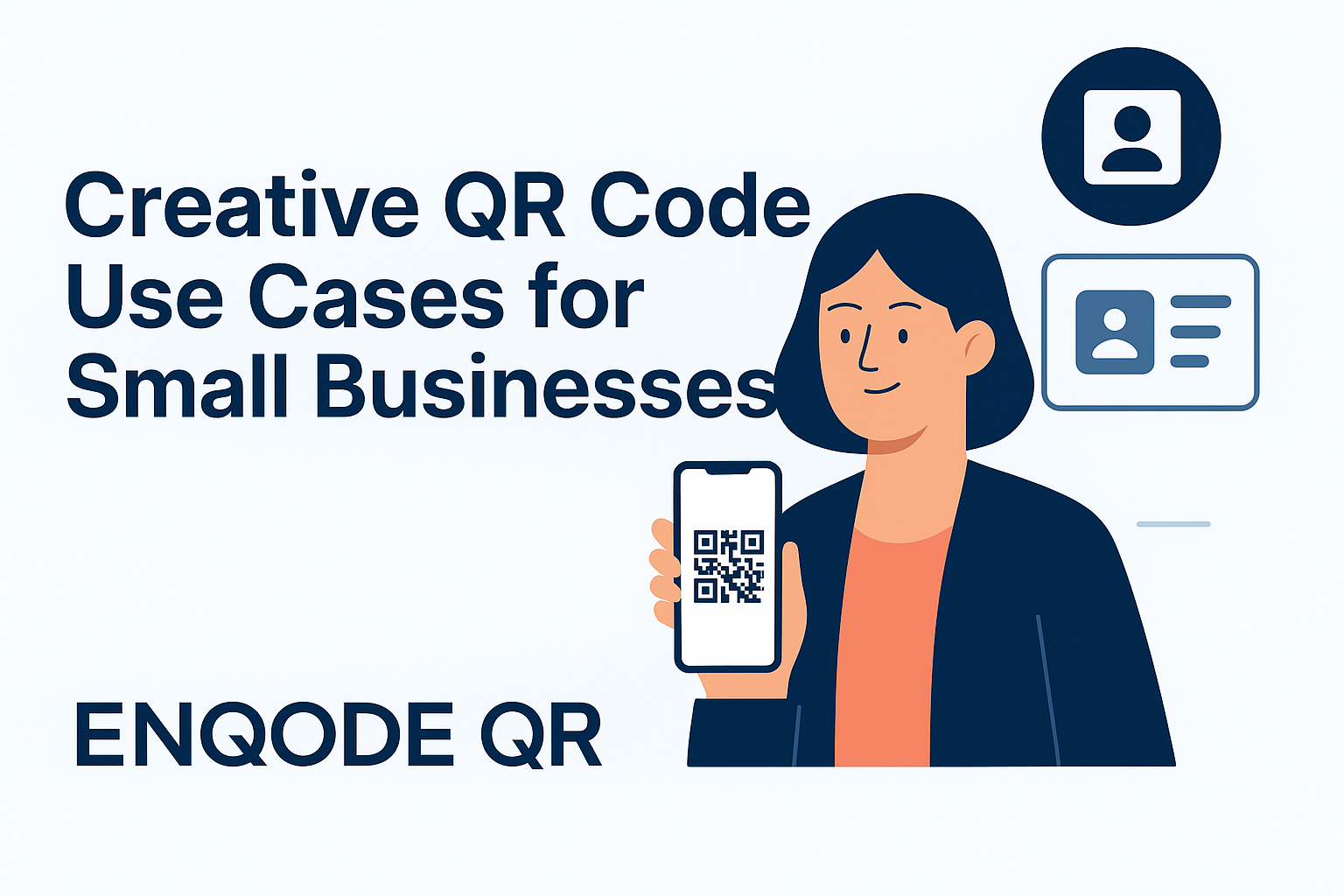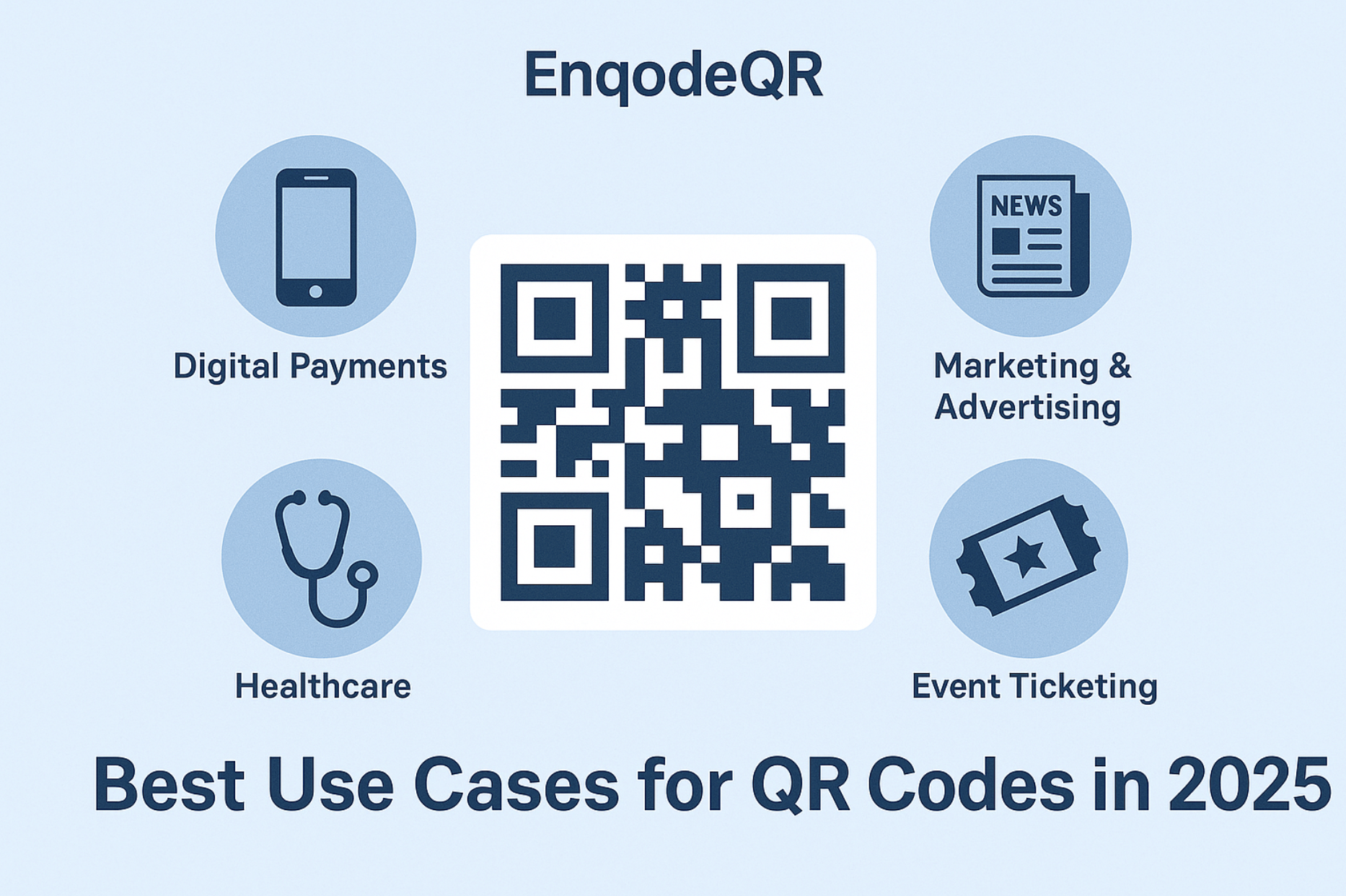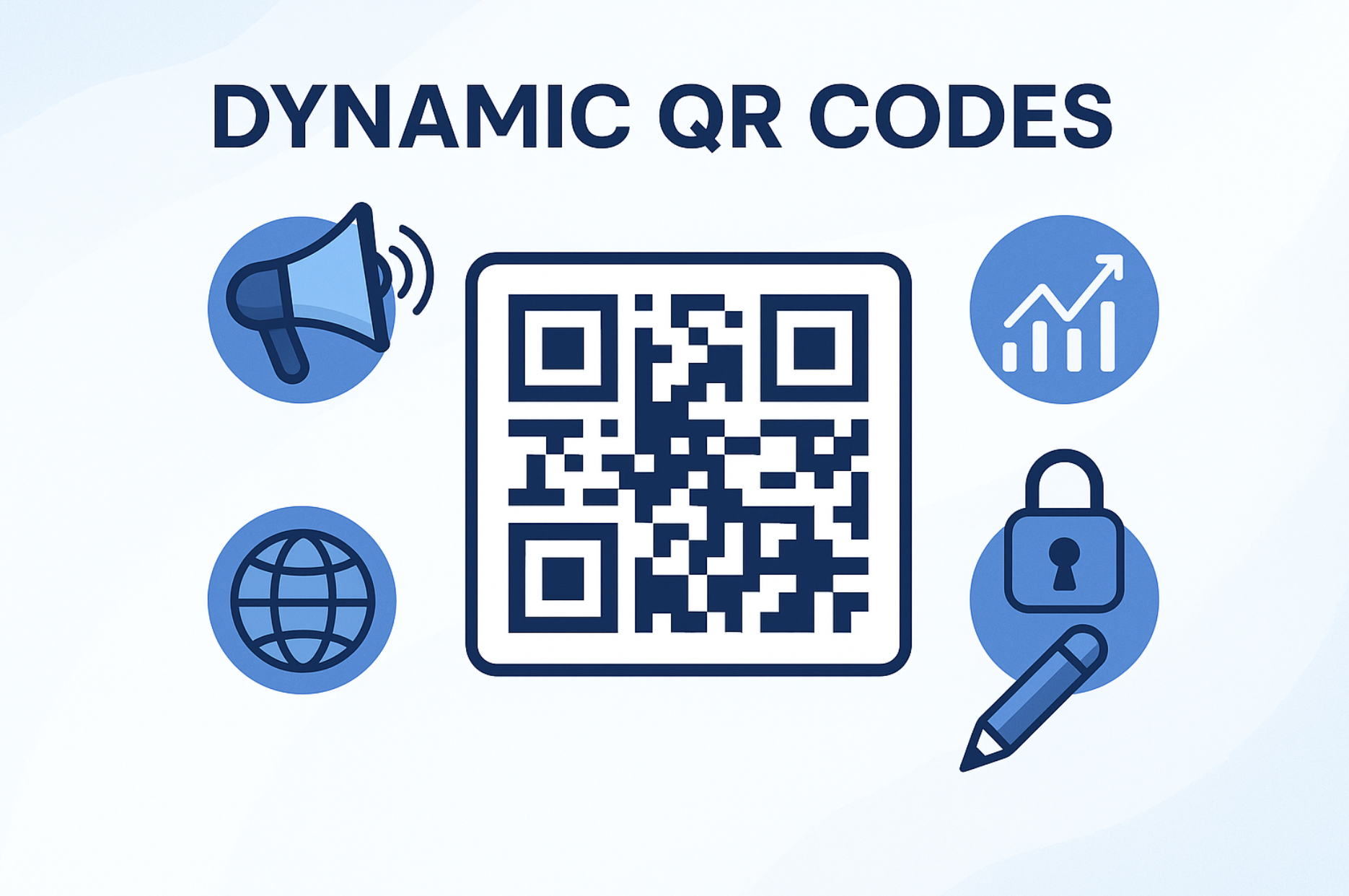Quick Summary
Are QR codes safe? This guide explains QR code security risks, common scams, and how to protect yourself when scanning or creating QR codes. Learn best practices and discover how Enqode QR helps you generate secure, trustworthy QR codes for any use case.
Table of Contents
Introduction
QR codes are now part of everyday life, used for everything from restaurant menus to digital payments. But with their growing popularity, users often wonder: Are QR codes safe? Like any technology, QR codes come with potential risks. In this post, we’ll explore those risks and how to stay safe when creating or scanning QR codes.
Can QR Codes Be Dangerous?
The QR code itself isn’t dangerous - it's just a visual representation of data. But just like clicking a link in an email, scanning a QR code can lead to unsafe websites or malicious downloads if you're not careful.
Cybercriminals have started using fake or tampered QR codes to trick users into giving up personal information, installing malware, or visiting phishing pages.
Common QR Code Security Risks
- Phishing Attacks: QR codes that lead to fake websites that mimic banks, login pages, or payment portals.
- Malware Downloads: Some QR codes trigger automatic file downloads that may contain spyware or trojans.
- QR Code Overlays: Bad actors physically cover real QR codes (on posters or restaurant tables) with their own malicious ones.
- Data Theft: Malicious QR codes may prompt users to fill in personal details on fake forms.
- Location Tracking: Some QR codes may collect geolocation data without user consent.
How to Identify Malicious QR Codes
- Check for stickers over original codes in public places
- Use a QR code scanner that previews the URL before opening it
- Be cautious of codes offering gifts, money, or asking for login credentials
- Avoid scanning codes from unknown sources or random flyers
Best Practices for Safe Scanning
- ✅ Use Trusted QR Scanners: Many modern apps preview URLs before opening them.
- ✅ Verify the Source: Only scan codes from reliable businesses or verified websites.
- ✅ Check the URL: Before clicking, confirm that the URL is secure (https) and matches the brand.
- ✅ Keep Your Phone Updated: Security patches help prevent exploitation of QR-related vulnerabilities.
- ✅ Use Antivirus Apps: Mobile security apps can flag unsafe links from QR scans.
How Enqode QR Protects Users
- HTTPS Redirection: All QR codes generated use secure URLs.
- URL Preview Option: Shows scan destination to users before redirection.
- Spam & Phishing Filters: Our system flags suspicious content.
- Password-Protected QR Codes: Secure sensitive content.
- Editable Dynamic QR Codes: Easily update or deactivate links that may have been compromised.
Whether you're creating codes for marketing, payments, or education, Enqode QR ensures that your QR experiences are safe, reliable, and trustworthy.
Frequently Asked Questions
Most QR codes are safe to scan, but you should always check the source and preview the link before opening. Use trusted scanners and avoid codes from unknown or suspicious places.
Look for stickers over original codes, strange locations, or offers that seem too good to be true. Use scanners that show the URL before opening and never enter sensitive info after scanning a random code.
Use a reputable QR code generator like Enqode QR that supports HTTPS, previews, and dynamic editing. Avoid free tools that don’t offer security features or analytics.
Conclusion
QR codes are convenient, powerful, and here to stay — but safety should never be overlooked. While most QR codes are perfectly safe, it’s important to follow best practices and use a trusted QR platform.
With Enqode QR, you can create secure, dynamic QR codes with peace of mind, knowing your users are protected.


